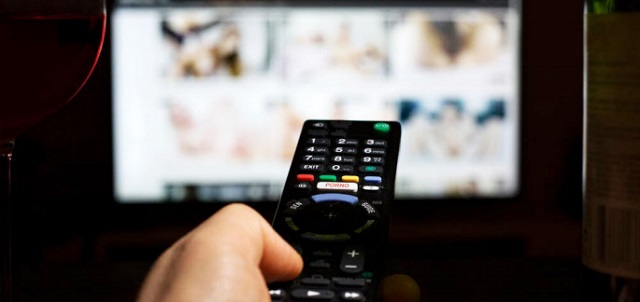
Watching rewires the brain to a more juvenile state
| RACHEL ANNE BARR | Pornography has existed throughout recorded history, transforming with the introduction of each new medium. Hundreds of sexually explicit frescoes and sculptures were found in the Mount Vesuvius ruins of Pompeii.
Since the advent of the internet, porn use has skyrocketed to dizzying heights. Pornhub, the world’s largest free porn site, received over 33.5 billion site visits during 2018 alone.
Science is only just beginning to reveal the neurological repercussions of porn consumption. But it is already clear that the mental health and sex lives of its widespread audience are suffering catastrophic effects. From depression to erectile dysfunction, porn appears to be hijacking our neural wiring with dire consequences.
In my own lab, we study the neural wiring that underlies learning and memory processes. The properties of video porn make it a particularly powerful trigger for plasticity, the brain’s ability to change and adapt as a result of experience. Combined with the accessibility and anonymity of online porn consumption, we are more vulnerable than ever to its hyper-stimulating effects.
Impacts of porn consumption
In the long term, pornography seems to create sexual dysfunctions, especially the inability to achieve erection or orgasm with a real life partner. Marital quality and commitment to one’s romantic partner also appear to be compromised.
To try to explain these effects, some scientists have drawn parallels between porn consumption and substance abuse. Through evolutionary design, the brain is wired to respond to sexual stimulation with surges of dopamine. This neurotransmitter, most often associated with reward anticipation, also acts to program memories and information into the brain. This adaption means that when the body requires something, like food or sex, the brain remembers where to return to experience the same pleasure.
Instead of turning to a romantic partner for sexual gratification or fulfillment, habituated porn users instinctively reach for their phones and laptops when desire comes calling. Furthermore, unnaturally strong explosions of reward and pleasure evoke unnaturally strong degrees of habituation in the brain. Psychiatrist Norman Doidge explains: “Pornography satisfies every one of the prerequisites for neuroplastic change. When pornographers boast that they are pushing the envelope by introducing new, harder themes, what they don’t say is that they must, because their customers are building up a tolerance to the content.”
Porn scenes, like addictive substances, are hyper-stimulating triggers that lead to unnaturally high levels of dopamine secretion. This can damage the dopamine reward system and leave it unresponsive to natural sources of pleasure. This is why users begin to experience difficulty in achieving arousal with a physical partner.
Beyond dysfunction
The desensitisation of our reward circuitry sets the stage for sexual dysfunctions to develop, but the repercussions don’t end there. Studies show that changes in the transmission of dopamine can facilitate depression and anxiety. In agreement with this observation, porn consumers report greater depressive symptoms, lower quality of life and poorer mental health compared to those who don’t watch porn.
The other compelling finding in this study is that compulsive porn consumers find themselves wanting and needing more porn, even though they don’t necessarily like it. This disconnect between wanting and liking is a hallmark feature of reward circuitry dysregulation.
Following a similar line of inquiry, researchers at the Max Planck Institute in Berlin, Germany, found that higher porn use correlated with less brain activation in response to conventional pornographic imagery. This explains why users tend to graduate to more extreme and unconventional forms of porn.
Pornhub analytics reveal that conventional sex is decreasingly interesting to users and is being replaced by themes like incest and violence.
The perpetuation of sexual violence online is particularly troubling, as rates of real-life incidences may escalate as a result. Some scientists attribute this relationship to the action of mirror neurons. These brain cells are aptly named because they fire when the individual performs an action but also while observing the same action performed by someone else.
The regions of the brain that are active when someone is viewing porn are the same regions of the brain that are active while the person is actually having sex. Marco Iacoboni, a professor of psychiatry at University of California Los Angeles, speculates that these systems have the potential to spread violent behavior: “the mirror mechanism in the brain also suggests that we are automatically influenced by what we perceive, thus proposing a plausible neurobiological mechanism for contagion of violent behavior.”
Though speculative, this suggested association between porn, mirror neurons and increased rates of sexual violence serves as an ominous warning. While high porn consumption may not drive viewers to harrowing extremes, it is likely to change behaviour in other ways.
Moral development
Porn use has been correlated with erosion of the prefrontal cortex — the region of the brain that houses executive functions like morality, willpower and impulse control.
To better understand the role of this structure in behaviour, it’s important to know that it remains underdeveloped during childhood. This is why children struggle to regulate their emotions and impulses. Damage to the prefrontal cortex in adulthood is termed hypofrontality, which predisposes an individual to behave compulsively and make poor decisions.
It’s somewhat paradoxical that adult entertainment may revert our brain wiring to a more juvenile state. The much greater irony is that while porn promises to satisfy and provide sexual gratification, it delivers the opposite.
****
Rachel Anne Barr is PhD Student, Neuroscience, Université Laval
 The Independent Uganda: You get the Truth we Pay the Price
The Independent Uganda: You get the Truth we Pay the Price



